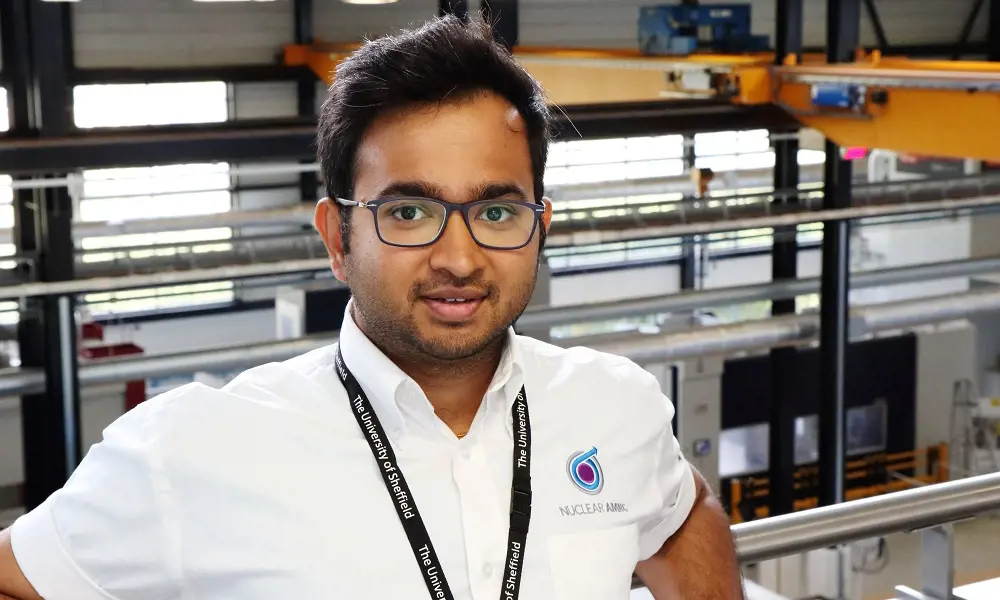
Q&A: Rahul Mandal
Why did you first become interested in engineering?
From quite an early age, I was interested in finding out why and how everything works around me. I have to thank my parents for tolerating the immense amount of questions I asked growing up. This is what science is: the desire to learn how nature and surrounding things work.
In a way, the science behind baking and cooking also drew me to that. I was astonished by how you can take the same ingredients but with different proportions, and create a completely new dish. I don’t want to sound clichéd but I do think that science is behind everything we do.
This is what science is: the desire to learn how nature and surrounding things work
How did you get to where you are now?
My undergraduate degree was in electronics and communication engineering. I enjoyed my course but was drawn more towards communication engineering, especially optical communications. That led to my master’s, which was in optics and optoelectronics from the University of Calcutta, India.
I then came to the UK to study for my PhD in Optical Engineering from Loughborough University – my thesis was entitled ‘Calibration and adjustment of coherence scanning interferometry’ (interferometry is a measurement method that uses the phenomenon of wave interference). During the final year, I did a small project on the optical sensing and characterisation of red blood cells.
I started my current position at the Nuclear AMRC almost straight after graduation. My research primarily involves investigating the cleanliness of nuclear components to identify any contamination or flaw that could lead to failure during its in-service life. I’m developing new techniques in light-based metrology, including automating the inspection process. Working in the nuclear industry is very interesting, because I know that my work will help deliver safe, low-carbon energy for decades to come. I am really proud to be a part of it.
Working in the nuclear industry is very interesting, because I know that my work will help deliver safe, low-carbon energy for decades to come. I am really proud to be a part of it.
As a child, I liked to sit down and read a book, paint, or watch cookery or science programmes. My mum was scared to let me cook, so I didn’t really cook anything until I was 15. I started cooking every day after I moved to the UK about eight years ago, out of necessity almost. I was still nowhere near baking at that point. I had never used an oven in India, so I was scared of ovens. I learned from my housemates how to operate it and slowly progressed in the world of baking.
I baked my first cake in 2016 and brought it into work for my birthday. Pretty much all my cakes have been taken into work. I wasn’t ever really exposed to British baking before, so feedback from colleagues has been really important. It’s been a steep learning curve from my first cake two years ago to what I do now.
What has been your biggest achievement to date?
I have to say that completing my PhD was definitely the biggest achievement, but participating in The Great British Bake Off is something that I will always remember. It was a journey that made me learn a lot more about myself.
I always mention that baking is a science. It shows how simple ingredients such as flour, water, salt, and yeast can transform into one of humankind’s staple foods. With the addition of sugar, butter and eggs, you can make the world’s favourite sweet treats. Changing the proportion of the ingredients will make the most varied form of pastries. People will say it’s magic – I would say it is pure science.
I learned a lot during my time in the Bake Off tent. Seeing so many people work harmoniously together to make one programme work is amazing. It taught me to push my boundaries. In a normal situation, I would never attempt to make a biscuit chandelier at home. But, along with my fellow bakers, I managed to do it, which is, in my words, a combination of science and engineering.
What is your favourite thing about being an engineer?
The best thing about engineering is that I can find out and understand how something works. I can design things that will solve a problem, and work on improving their performance until they work in just the way I want.
I am also a volunteer STEM Ambassador, and really enjoy working with young aspiring students to inspire them to develop their own career in science and engineering. There is a huge gender imbalance in the field of science and engineering and, for different reasons, a huge part of the female population is not encouraged enough to take science and engineering as subjects in school. I would like to say to everyone – boys and girls – that if you can cook and bake, you can do science and engineering.
I would like to say to everyone – boys and girls – that if you can cook and bake, you can do science and engineering
Quick-fire facts
Age:
31
Qualifications:
PhD MTech BTech
Biggest engineering inspiration:
Nature, which has produced the biggest scientific and engineering creations – it inspires me to try and do something new every day.
Most-used technology:
Anything used to measure is my type of technology: from a rule and measuring scale to high-end interferometric measurements.
Three words that describe you:
Scientific, bashful, baker.
What does a typical day at work involve for you?
There’s not really a typical day at the Nuclear AMRC. I normally work on multiple projects for various customers, so I have to follow certain plans so that the projects are completed to schedule. Usually I like to distribute my weekly time into different projects and work accordingly. One day, I might be setting up laser interferometry experiments in the laboratory, the next I’ll be using digital cameras to create a detailed three-dimensional image of a testpiece that’s just come off one of our giant machine tools.
However, during the weekend, I’m busy planning my new bakes and probably experimenting with new flavour combinations. It is really busy, but I like to be busy. The diversity of the projects also keeps me going.
What would be your advice to young people looking to pursue a career in engineering?
Enjoy your subject, love your job and never stop questioning. When you work in engineering, you have to think ahead. You have to think about the issues that might arise, and then try to deal with them.
What’s next for you?
To be honest, I am not sure. I love science and engineering, so I would love to carry on with my research work. I will definitely carry on baking – and I would love to combine the two. I want to inspire young school students to do more science and engineering, as well as to do more baking and cooking. For me science and baking are synonymous. If you can do one, you can do the other – you just need to put some love and care into learning how to do it.
***
This article has been adapted from "Q&A: Dr Rahul Manhal", which originally appeared in the print edition of Ingenia 77 (December 2018).
Keep up-to-date with Ingenia for free
SubscribeRelated content
Energy
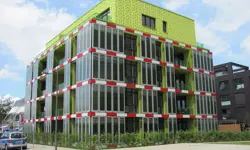
Algae-powered architecture
An apartment block in Hamburg in Germany has been built that uses microalgae placed within its façade to generate heat and biomass. Jan Wurm, an associate director at Arup, was one of the chief designers of the energy system. He talked about the concept, execution and results from the world’s first photobioreactor.
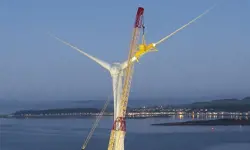
Digital hydraulics for wind energy and beyond
Research that has helped change the technology for harnessing wind energy has many other applications. The digital hydraulics system devised by Artemis Intelligent Power has received many accolades, the latest being the winner of the 2015 MacRobert Award.
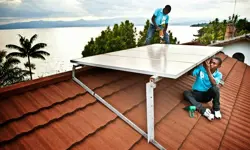
New energy pioneers
London-based BBOXX supplies solar-powered battery boxes to customers in developing countries. Their remote monitoring and battery management system was one of the winners of the 2015 Bloomberg New Energy Finance Award.
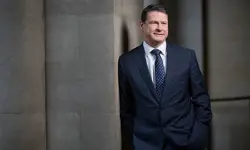
Energy with connections
When Steve Holliday FREng moved from the oil industry into energy distribution, the sector was seen as staid. In reality, during his years at National Grid, the sector became increasingly important as the need to tackle climate change led to a transformation in the UK’s energy mix.
Other content from Ingenia
Quick read

- Environment & sustainability
- Opinion
A young engineer’s perspective on the good, the bad and the ugly of COP27

- Environment & sustainability
- Issue 95
How do we pay for net zero technologies?
Quick read

- Transport
- Mechanical
- How I got here
Electrifying trains and STEMAZING outreach

- Civil & structural
- Environment & sustainability
- Issue 95